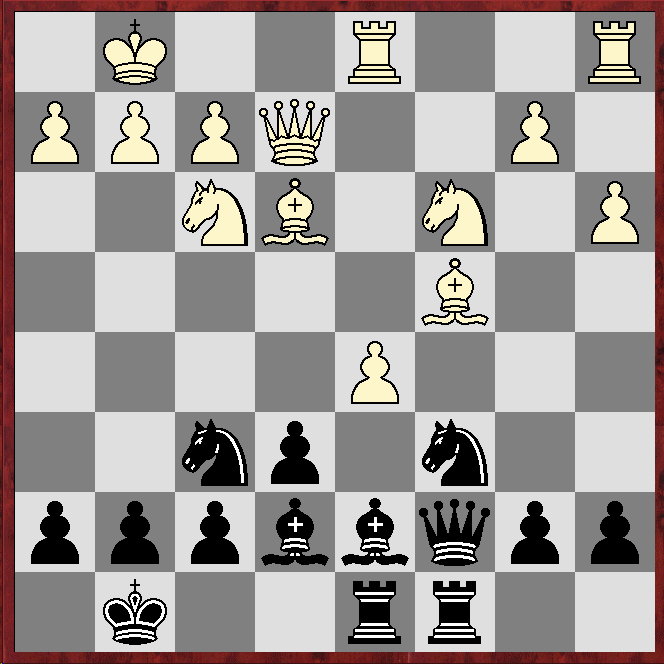*****
*****
*****
*****
*****
*****
*****
Black's normal response in such a setup would be 16...exd5. I rejected it because I did not like Black's
position after 17.Bxd5!?, eg 17...Nxd5? 18.Nxd5 Qd6 19.Nb6, which wins the exchange for White. However Black can improve by moving the light-square bishop to g4 or f5, or with Stockfish16's preference, 17...a6, which the engine reckons give equality (Komodo14.1 reckons White is slightly better).
position after 17.Bxd5!?, eg 17...Nxd5? 18.Nxd5 Qd6 19.Nb6, which wins the exchange for White. However Black can improve by moving the light-square bishop to g4 or f5, or with Stockfish16's preference, 17...a6, which the engine reckons give equality (Komodo14.1 reckons White is slightly better).
Instead I flicked in 16...Na5!?, and only after 17.Ba2 played 17...exd5. The problem with this sequence is that the knight is awkwardly placed on the rim.
The game continued 18.Bxd5 (the engines reckon 19.Rxd5!? is slightly stronger) Bc6?, after which 19.Rac1 would have given White a winning advantage, according to the engines, thanks to the threat of 20.b4.
LESSON: we all like to find exceptions to the rules (such finds are what masters are made of), but exceptions are indeed exceptional.

No comments:
Post a Comment